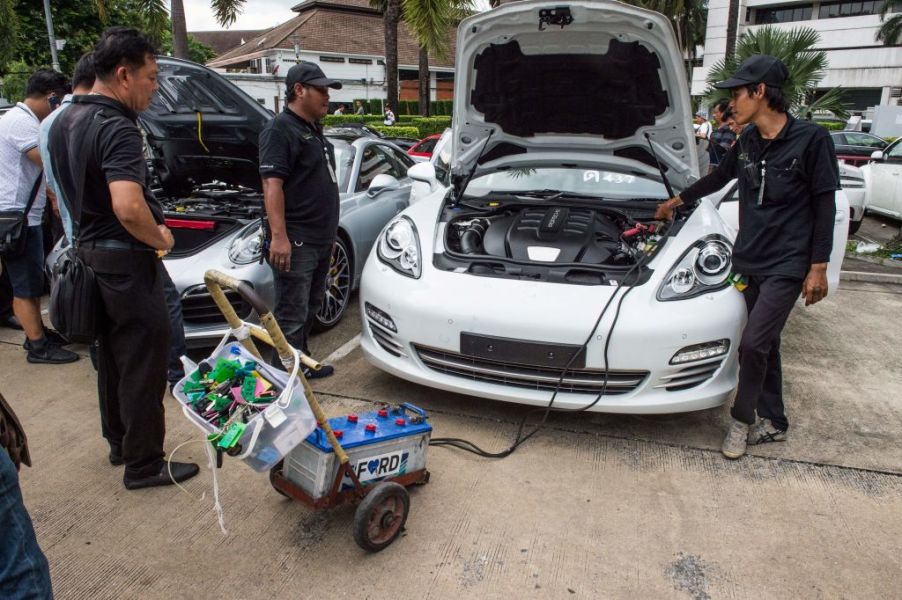
Auto Repair: What to Know About Your Car Stalling (and How to Handle It)
As a driver, you trust your vehicle to transport you where you need to go, safely and promptly. But not everything always goes as planned, and when you’re engine stalls, it can cause real difficulties. It can be frustrating figuring out what happened and confusing deciding what to do next. But knowing the reasons behind why a car may stall, what do when it happens, and when it’s time to get to an auto repair shop can help you feel more confident the next time something unexpected happens to you.
Reasons why your car may stall
There are a variety of reasons why your vehicle’s engine may stall. Sometimes, it can be easy to figure out the cause of the stall. Other times, you’ll need the help of a professional. Here are just a few of the reasons why a car may stall:
Fuel system problems: According to Your Mechanic, the fuel system can have significant effects on the behavior of your engine. Your engine may be having difficulty with the quality of fuel or an issue with the fuel injector or supply. Your fuel system can easily affect your engine with too little fuel, too much fuel, or bad fuel. With too little fuel, the engine cannot produce enough combustion power and will stall. With too much fuel, spark plugs can become flooded and cannot ignite the fuel within the cylinder. Lastly, with poor-quality fuel, the entire combustion process is compromised and will misfire.
Inaccurate timing: Your engine’s timing goes right along with its fuel system. Belts or chains help to synchronize your engine, so it runs accurately and efficiently. But it this is off, it can cause the engine to stall because inaccurate timing can cause flooding of fuel or the starvation of it.
Inadequate air supply: It may not seem it, but air supply is just as important to your engine as fuel. In fact, your engine will need 15 parts air to every one part fuel. If your engine is not getting the right amount of air, either too much or too little, it may stall.
Electrical problems: Today’s vehicles use electronics to control just about everything in your vehicle. These electronics work by communicating with each other and if one of those connections miscommunicates or loses connections with another, it could cause problems with your engine. Sometimes, stalling can simply be the result of faulty wiring.
Transmission problems: If there are problems with internal pressure within your transmission, your car’s torque converter may lock up and stop working while it is idling. When your torque converter locks up, your engine can stall at an idle.
According to Aceable, other problems that can cause an engine to stall include a faulty fuel pump or alternator, dead battery, coolant sensor problems, and problems with ignition.
Important things to remember when your car stalls
When your engine dies and the car stalls, it’s important to remember that other systems in your vehicle may be affected as well. According to Consumer Reports, your steering wheel may be more difficult to turn and the brake pedal may become harder to push, increasing your stopping distance. Depending on the reason for its stalling, your vehicle’s airbags may not work properly either.
Any time your engine stalls, you should put on your hazard lights, or four-way flashers. Typically a bright-red button in the shape of a triangle, your hazard lights will inform other drivers that you are having trouble.
When possible, coast or move your vehicle to the side of the road, as far from traffic as possible. Once stopped and safe, try restarting your engine. Always ensure that your car is shifted into Park if automatic and Neutral with a manual. If your engine does start again, be sure to let it run for a few minutes before taking off.
If you cannot get your engine to start at all again, always remember that safety comes first. When waiting for a tow truck or assistance, always stay inside of your car. It is the place that will offer you the most protection from the elements, as well as dangerous traffic.
How to get your engine going again and when it’s time to seek help
Not everything has to be a timely and expensive fix. There are many times that you can help your engine restart and get back on the road. Here are a few things you can try to get the engine started again:
- Use a code/computer scanner to check for engine error codes and other malfunctions with wiring and connections. Sometimes, it can be an easy fix with a new fuse, or reconnecting wiring.
- With overheating or cooling problems, allowing the engine to rest for a few minutes can help. Turn off your air conditioner completely and turn on the heat. This will eliminate the need for your engine to use as much coolant and it may restart with another turn.
- Check under the hood and around the vehicle for leaking fluids, especially fuel. Look for corrosion around batteries, sparkplugs, and wiring. Sometimes, a simple cleaning job can make those connections work properly again.
- Check your fuel pressure gauge and regulator. You may be due for a new fuel filter, and according to Underhood Service, it could be leaking.
Even if you do get your engine going again, it would be wise to have it looked at by a professional. Even for people familiar and handy with vehicles, it can be difficult finding the source of your engine’s problems.


